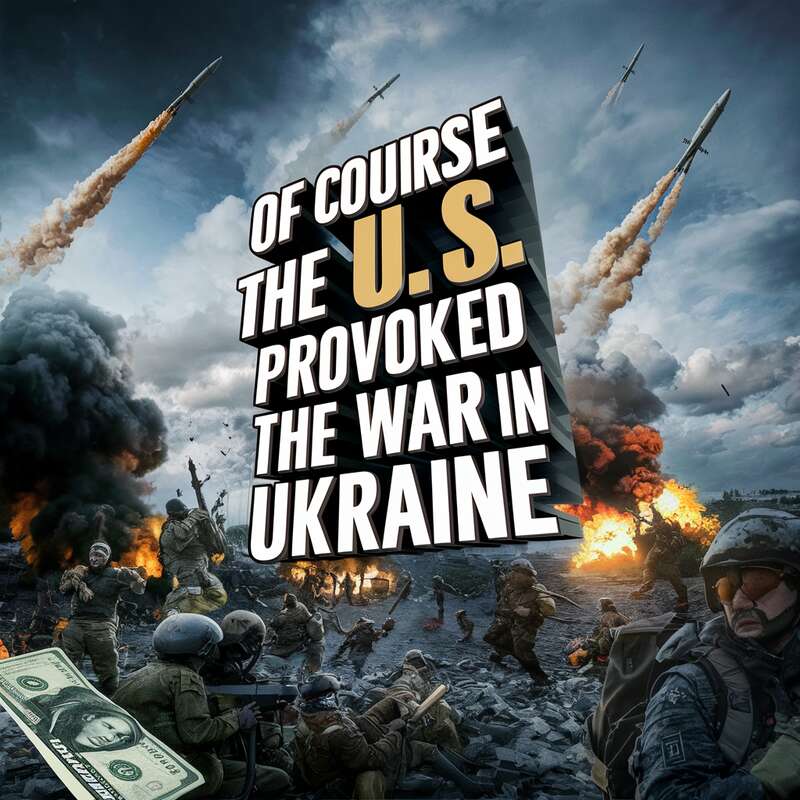Seduction to the truth: Anatol Lieven in The Nation says that the U.S. provoked Russia in Ukraine
by Donald A. Smith, PhD
I got a kick out of reading Anatol Lieven's essay To Seek Peace in Ukraine, Remember the End of the Cold War in the current issue of The Nation.
The Nation has been publishing more and more opinion pieces pointing to U.S. guilt in Ukraine. (See, for example, Robert Borosage's April 2023 essay The Left Should Support Ending Violence in Ukraine.) They are doing so gingerly, lest they be accused of being Putin apologists.
People need to be nudged and teased and seduced into accepting the facts. If you state the truth too soon, you'll get rebuffed. Seduction requires skill and tact.
So, Lieven doesn't actually use the "p" word (provoked). But it's clear what he means.
Lieven tiptoes around stating the obvious: the U.S. provoked Russia in Ukraine and so shares guilt for the bloodshed and costs. Of course, Lieven states the requisite (and legitimate) condemnations of the Russian invasion. Lieven also points out that the U.S. was guilty of similar invasions far from U.S. borders.
Lieven describes how after the breakup of the Soviet Union, the U.S. exploited Russian weakness and imposed brutal economic austerity on Russia, resulting in economic ruin and corruption. "As it turned out, the form of capitalist 'democracy' inflicted on ordinary Russians was a particularly repellent and disastrous one, and a majority of Russians had no intention of submitting passively to dictation from Washington."
Lieven also describes how NATO expansion contributed to distrust by Russia of U.S. intentions.
When it comes to the genesis of the present war, it is important to remember that key aspects of the 1980s and ’90s have been largely obliterated from public awareness in the US and Europe by state propaganda and the mainstream media. If anyone had put forward a strategy back then that involved Ukraine joining NATO and the expulsion of the Russian Black Sea Fleet from Sevastopol, even hawkish Western analysts would have regarded this as insanity and a sure path to war. The way in which the perception of this fantastically dangerous project shifted from insanity to normality—in Washington and London, but not of course in Moscow—is a frightening example of the breakdown of serious and independent strategic analysis in the West, one stemming in part from the decline in even medium-term historical memory.
He describes Russia "as a country mainly reacting to moves by the West. For while the Russian invasion of Ukraine was without doubt an illegal and immoral act of aggression, in terms of wider strategy it is the United States and its European satellites that over the past 30 years have created a wholly new status quo in Europe, and sought to do so in the former Soviet Union."
Lieven says that Russia's European neighbors have a legitimate fear of Russian aggression, given the history of Soviet occupations and invasions. But likewise, "Americans need to acknowledge the crimes committed by the United States during (and after) the Cold War, which make it impossible for most Russians and many people around the world to accept America’s right to lecture them on morality, let alone to dictate their own security policies."
Lieven says that it was hubristic to expand NATO into Ukraine. Imagine how the U.S. would react if the tables were turned and our strategic enemies were setting up a client state in Mexico? "Thus, while we cannot say for certain that any future Chinese attempt to create a military alliance in Central America will lead to invasion and conquest by the United States, we can say for certain that it will lead to massive US support for coups, military dictatorships, and the savage repression of dissent, and that these policies will continue until the danger of such an alliance has been eliminated. We know this for certain because this is how America has repeatedly acted in the past."
The Nation's publisher and editor, Katrina vanden Heuvel, is the widow of famed Russian scholar Stephen F. Cohen, whose books and articles warned against aggressive U.S. policies towards Russia.
My educated guess is that vanden Heuevel was under tremendous pressure, from donors and from a divided staff, not to tell the truth about Ukraine. Likewise, Dennis Kucinich said in a zoom meeting not to judge progressives in Congress too harshly for backing the funding of Ukraine, for quickly withdrawing their letter calling for a ceasefire, and for failing to tell the truth about what happened; they too were under tremendous pressure.
A publication such as the New York Times deserves condemntation for going out of its way to promote the government narrative about Ukraine.
For a much fuller description of U.S. provocations in Ukraine see here.
